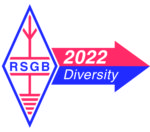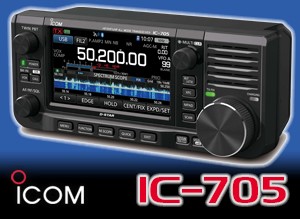Diversity in amateur radio
 What was your earliest encounter with amateur radio? There are probably almost as many stories as there are RSGB Members. Perhaps it was early contact with your local club. I remember looking mine up in the RSGB Bulletin (yes, I know!) and going to a meeting. Fortunately, I was already nuts about radio or that meeting might have been the end. No one spoke to me. No one even offered me a coffee. Nothing much seemed to be going on. The meeting was in a gloomy community hall that smelled of disinfectant. I didn’t go back and the experience has stayed with me. I hope this doesn’t ring a bell – but it might!
What was your earliest encounter with amateur radio? There are probably almost as many stories as there are RSGB Members. Perhaps it was early contact with your local club. I remember looking mine up in the RSGB Bulletin (yes, I know!) and going to a meeting. Fortunately, I was already nuts about radio or that meeting might have been the end. No one spoke to me. No one even offered me a coffee. Nothing much seemed to be going on. The meeting was in a gloomy community hall that smelled of disinfectant. I didn’t go back and the experience has stayed with me. I hope this doesn’t ring a bell – but it might!
We all know it doesn’t have to be like that and fortunately I had already met amateurs prepared to welcome me with great generosity and humour. There seemed to be another virtual ‘club’ – amateurs bound together by their passion for radio. They shared knowledge willingly and were prepared to lend you almost anything. They wanted to do things! How do we re-boot that spirit?
In our RSGB Strategy 2022, with strong Member support, we want to encourage far greater diversity in amateur radio. Diversity in terms of Membership – not just for ageing white males like me! Better access for all – especially young people, minority groups and those living with disabilities. We also need diversity in our activities. Amateur radio is a scientific service – just look at its history. The youthful enthusiasts of today could well be the inventors and entrepreneurs of the future – but only if amateur radio is seen as a test bed for ideas and innovation. Whatever our age, amateur radio is also an important part of personal fulfilment through life-long learning.
Where do clubs come into this? There are about 500 clubs affiliated to the RSGB. They remain an important feature of the service – even in these days of changed social habits. Some great things are going on in clubs across the UK. There are specialist groups for particular enthusiasms – such as microwave operation, low power working, contesting, building things – the list goes on. Legacy Funding has recently been given to groups working on construction projects with young people. Some clubs are hardly recognisable as such. Suffolk RED and Essex Skills Night are just two examples and exist to bring together people from neighbouring clubs to share and enjoy innovation and activity. Groups meet in pubs or for breakfast – and of course there is the internet. There are also other quite traditional clubs that are simply all-round successful!
Sharing these good ideas already goes on locally but I feel we should do more. That is one reason why I have been visiting clubs to see ideas in action. Please try to help. There will be a forum at the RSGB Convention in October to offer my findings so far and then discuss openly how best to take things forward. Please come – and also contact me if you have some really innovative ideas to share (president@rsgb.org.uk). It’s about the future.
Nick Henwood, G3RWF
RSGB President
Category: Front Page News, RSGB Notices, RSGB Strategy 2022










